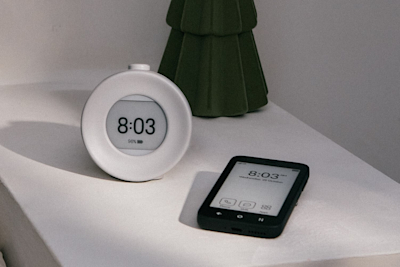
How to wake up early: 5 Secrets of Early Birds
Are you a morning person?
If you're not a morning person, the thought of waking up early can be daunting. However, there are plenty of benefits to getting out of bed early – from increased productivity to improved mental and physical health.
With Mudita by your side and a little bit of organization and discipline, you, too, can become an early riser.
Waking up early isn't easy. I know, we've all been there. However, what's worse is when you wake up and are just not excited to start your day. The good news is that there are ways to make getting out of bed easier and more fun! So let's discuss how to do exactly that: We'll cover everything from identifying what gets you excited about waking up early (so you can prioritize it) to creating a consistent bedtime schedule so that once your head hits the pillow each night, it stays there until morning comes knocking at your door again (that is if it even knocks).
1. What is your motivation for wanting to get up early?
The most important part of waking up early is finding your reason for doing it. There are many reasons you may want to wake up early, however if the only reason you have for waking up early is because someone else tells you that it’s a good idea and that you should do it, then perhaps it's time to rethink the purpose of mornings.
On the other hand, if your reason for waking up in the morning has something to do with improving yourself or having a goal in mind, then this can be an excellent and effective way of getting started on your path towards becoming an early riser.
If nothing else, try waking up earlier before deciding whether or not you were born to be a morning person.
2. Get excited about how much time you'll have in the morning.
The morning is the perfect time to set your day up for success. If you're an early riser, you already know how much time you have in the morning to get things done. However, if you're not an early riser yet, but want to become one, then imagine how much free time later in your day would be available if you had already gotten up and started working on your goals and tackling the to-do list earlier!
What would you do with all this extra time? Here are some ideas:
Work on your personal goals (exercise/reading/meditation etc.)
Catch-up on work or daily errands
Enjoy your "Me Time"
Read books, newspapers or magazines
You could use that time to work on a passion project which you're excited about (but haven't had time for) Plan or organize something important in your life (travel, etc.) Get up early enough to take a walk outside before starting work.
Mudita Harmony 2
3. Go to bed at a reasonable hour.
There’s no doubt about it—going to bed at a decent hour is important. However there are many ways to do this and still get your eight hours of sleep in, so you can wake up refreshed and ready for the day ahead. Here are some tips for getting more sleep at night:
Set a bedtime reminder. This may seem like a no-brainer, however, it’s essential for helping you fall asleep at a reasonable time every night if you have trouble doing so naturally (and who doesn’t?). Mudita Harmony features a built-in bedtime reminder feature which can help you start your offline bedtime routine.
Set an alarm 60-90 minutes before your desired bedtime, then use that time to wind down from the day with whatever works best for you—taking a warm bath, reading, meditating or even doing some breathing exercises while laying in bed can help relax and prepare your mind for slumber!
4. Create a consistent bedtime schedule.
If you're having a hard time waking up early, creating a consistent bedtime schedule that allows you to get seven to nine hours of sleep each night is essential. This will help your body learn when it should start feeling tired and ready for bed.
Start by making small changes: If you're used to sleeping in late, don't try to go from 10am one day straight to 5am the next. Ease into it gradually by setting your alarm clock for 15 minutes earlier each day until you reach your desired wake-up time.
Once you get to your preferred wake-up hour, you’ll be ready to implement a consistent sleep schedule by setting your alarm clock for the same time every day. Even if you don't have school or work on the weekends, it’s important to set an identical wake-up time on your days off. It goes without saying that you should also make sure to go to bed at about the same time every evening—the more regularity in your schedule, the less likely it is that sleep patterns will deviate during off-work days.
5. Make time for an offline morning routine.
An offline morning routine is exactly what it sounds like: a set of activities you do before you go online. It should be a calming, meditative experience which helps you focus your mind and body before the hustle and bustle of your day begins. This can be anything from having your morning coffee while sitting quietly with your eyes closed while focusing on a single thought or object to practicing breathing exercises, meditating, journaling, or doing yoga. The point is that this ritual gives you time to prepare yourself for the day ahead, so make sure it's something meaningful to you!
READ: Mindful Mornings: The benefits of an offline morning routine
Allow yourself time to ease into the morning
If you're not a morning person, it can be tough to wake up early. Start your morning off right by giving yourself time to ease into the day. Instead of being jolted awake by a loud smartphone alarm. allow yourself time to wake up gradually, with a light-enhanced alarm clock like Mudita Bell. This will help you feel more rested and ready to start your day.
Getting out of bed early can be a difficult task; however, it can also be very rewarding. The key is to find reasons which motivate you to get out of bed and hit the ground running. Getting out of bed is the first step in making the most out of your day. By starting it off right, you'll be well on your way to feeling energized and ready to tackle whatever challenges come your way.
If you’d like to read more about improving your sleep hygiene, please check out our Sleep Better page or read some additional articles connected to the subject on our blog:
Also consider joining our Mudita Community on our forum.
Related stories

How To Build a More Thoughtful Relationship with Tech in 2026
Build a more thoughtful relationship with technology in 2026. Learn how mindful tech use & mindful devices can help you reclaim focus, rest, and balance.

Why Mindful Tech Presents are the Best Gifts for Friends & Family
Why mindful tech may be the most thoughtful gift you can give your family. Less distraction, more presence, and healthier relationships with technology.

5 Things Sleep Experts Say We Still Get Wrong About Sleep
Are you making these 5 sleep mistakes? Learn what experts say about sleep trackers, workout timing, and why hitting snooze makes you feel worse, not better.
If you'd like to receive the best stories from our blog, keep up to date with our progress and get notified about our product releases and special discounts.